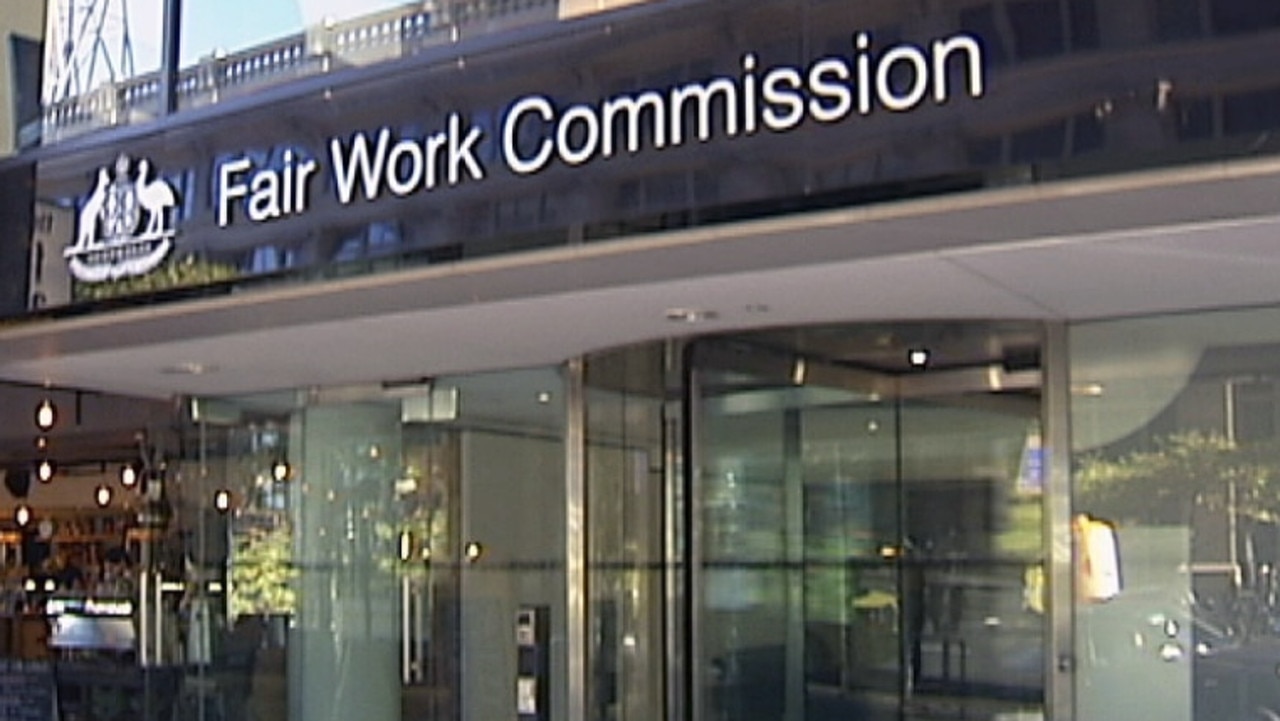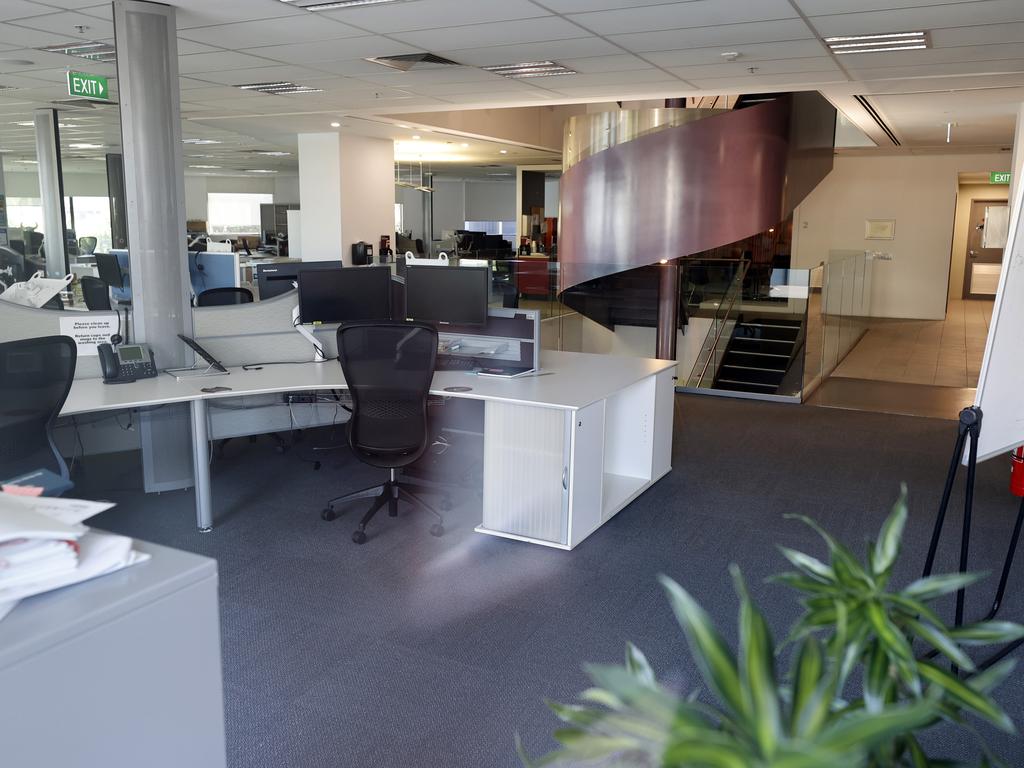WFH: Fair Work Commission rejects Adelaide man’s request to work from home 100 per cent of the time
A ruling has found an Adelaide man’s reason for wanting to work from home “perplexing” in a blow for staff who have rejected the office.
Big bosses have won a victory when it comes to forcing staff back to the office with the Fair Work Commission deeming an employee’s reasoning to work 100 per cent from home “perplexing”.
In a ruling that could have implications for all staff who value WFH, the Fair Work Commission (FWC) said “the worst of the pandemic” was over and as such the company involved was “within its rights to require its employees to return to the office”.
It’s the latest in a number of wins by businesses keen to get staff back to face-to-face working – at least part of the time.
The FWC found against Charles Gregory who works in Adelaide for Maxxia, a firm which organises tax efficient salary packaging services for staff working in companies across Australia including the South Australian government.
Labor’s new Secure Jobs Better Pay workplace laws gives employees greater powers to challenge a company’s rules on flexible working.
Mr Gregory said he should work at home all the time so he could care for his child every second week as part of a custody agreement.
He also has an inflammatory bowel condition which means he needs to go to the toilet “with urgency and more frequently than usual,” the FWC finding stated.
But the FWC declared Maxxia had “reasonable business grounds” to deny Mr Gregory’s request to never return to the office regularly.

Mr Gregory’s role requires him to provide advice and manage cases.
While his contract had required him to go into work, the pandemic had meant that in practice much of his time at Maxxia had been spent working from home.
He had temporarily taken on a secondment, where it was easier to work from home, but would be stepping back into the former role.
Maxxia’s hybrid working policy now requires staff be in the office for at least 40 per cent of the time.
The company said that Mr Gregory had a specialist role that demanded different skills that meant he needed to be present some of the time.
Mr Gregory’s team leader Alan Henderson said he had noticed that Mr Gregory was “struggling mentally,” but he was “not in a position to support him properly,” if he never came into the office.
In addition, the firm claimed that when working from home, Mr Gregory’s productivity was about 50 per cent which was below the 85 per cent target.
“Mr Gregory was not achieving an increase in productivity, and so it would be advantageous to observe and support him in the office,” Mr Henderson stated.
He added that Maxxia would be liable for significant financial penalties from clients if errors were made.

‘Perplexing’
The FWC said that Maxxia “genuinely tried to reach an agreement with the employee,” however Mr Gregory rejected these offers.
This included scheduling his in-office days to the weeks when he didn’t have custody of his child.
The company also said it could move his desk closer to the toilet for his IBS issues.
The FWC noted that Mr Gregory, “gave the impression that he did not want to use the office toilet – this was somewhat perplexing given his preparedness to use service station toilets if needed while driving around Adelaide”.
The commission also said that Mr Gregory had “not sought ongoing treatment to address his condition”.
Company ‘within its rights’
The FWA rejected Mr Gregory’s request to work from home full-time and said it in its decision that it was “desirable” for him to be in the office to “allow for observation, interaction and (if necessary) coaching to improve Mr Gregory’s productivity” and additionally so his knowledge, “could be more easily accessed by less experienced team members on a face-to-face basis”.
And in a warning to staff at other firms that might try to push back from going into the office, the FWA said: “the worst of the pandemic appears to have passed and the company is now within its rights to require its employees to return to the office in accordance with their contracts of employment”.

Fired for not logging on enough from home
Earlier this year, The FWC backed Insurance Australia Group – which trades under the names NRMA Insurance, CGU and Swann – after it dismissed an employee who was working from home.
Suzie Cheikho was fired for missing deadlines and meetings, being absent and uncontactable, and failing to complete a task which caused the industry regulator to fine IAG.
After a warning last year, IAG began to analyse the number of times she physically pressed her keyboard on 49 working days from October to December.
The review found she did not work her rostered hours for 44 days, started late on 47 days, finished early on 29 days and performed zero hours of work on 4 days.
She averaged 54 strokes per hour over the duration of her surveillance, which showed “she was not presenting for work and performing work as required”.
In a formal meeting about the review, Ms Cheikho said she did “not believe for a minute” the data was true, but showed no evidence that she’d been online and working when the report showed she hadn’t.
In a separate case, another boss monitored the call logs of his staff as he suspected they were “taking him for a ride”.
The director of a company – who can’t be named for legal reasons – knew something was wrong when contribution to work chats dwindled, email responses slowed and a growing number of calls went unanswered.
Calls also weren’t being logged on the company’s software.
Following further inquiries, he discovered that not only were calls not being logged, but many were found to be “ghost calls” – or fake entries.
Within 18 months, he fired three employees after tracking their call logs and determining they were doing insufficient work.

In a survey from September, 50 Australian CEOs said they expected white collar roles to be back at the office full time within three years.
The KPMG CEO Outlook said work from home could vanish entirely by 2026. Three-quarters (75 per cent) of Australian CEOs said they will reward employees who make an extra effort to come into the office with raises, promotions and more interesting work, compared to 89 per cent of global CEOs.
In August, Bendigo and Adelaide Bank CEO Marnie Baker said the company would be pushing staff to come back into the office or branch more often.
But she said it wasn’t about productivity and she had no “doubt that you can be productive” from home.
“It is as important the relationships that we have with each other, and I know because I see it, and I see it playing out when people are together in the office, the energy levels, the interaction, the innovation – that’s something that you will not get when you’re sitting at home by yourself, that innovative thinking.”






